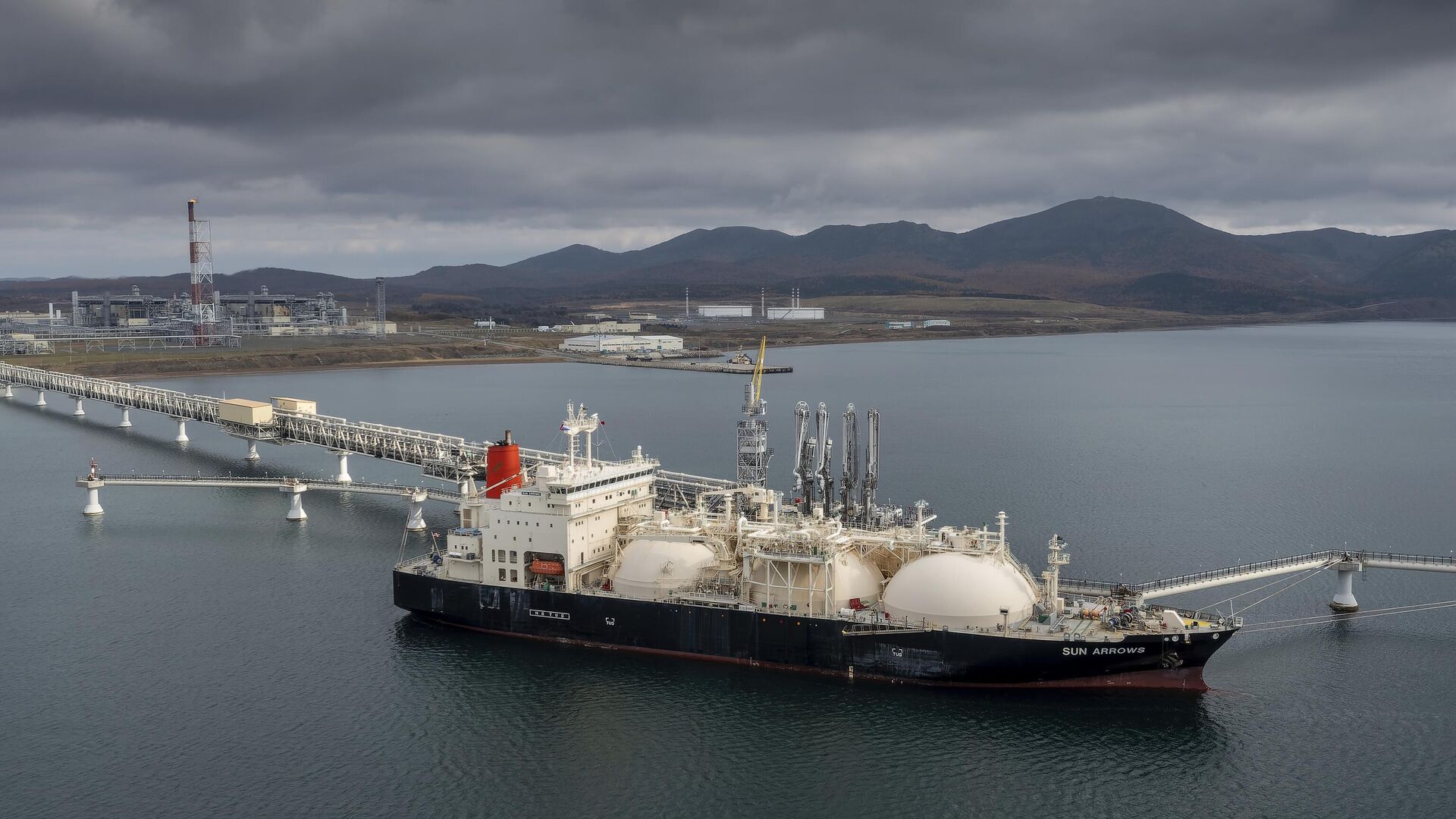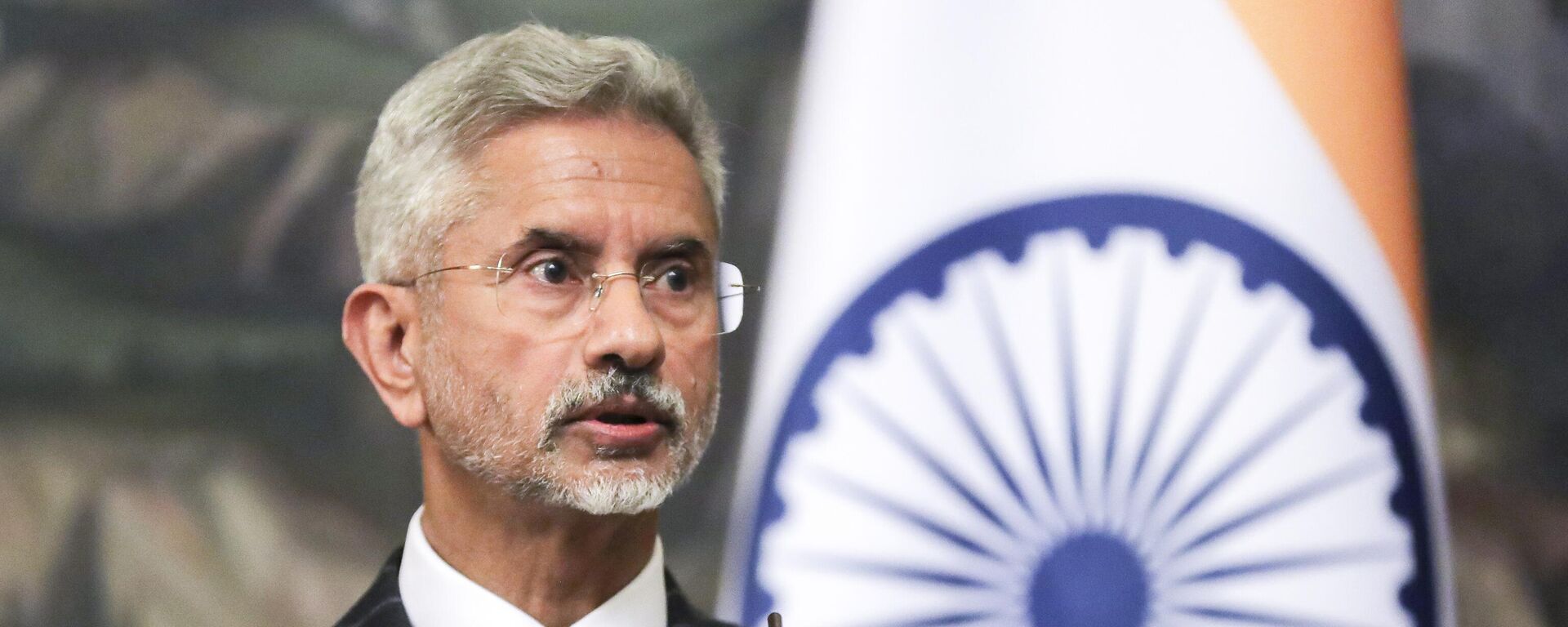https://sputniknews.in/20221214/indian-refiners-hope-for-trouble-free-russian-oil-supplies-despite-g7-cap-89244.html
Indian Refiners Hope for Trouble-Free Russian Oil Supplies Despite G7 Cap
Indian Refiners Hope for Trouble-Free Russian Oil Supplies Despite G7 Cap
Sputnik India
Russia is now India’s biggest oil supplier, having replaced traditional exporters Iraq and Saudi Arabia.
2022-12-14T15:56+0530
2022-12-14T15:56+0530
2022-12-14T15:56+0530
russia
russian oil
narendra modi
indo-russian relations
https://cdn1.img.sputniknews.in/img/07e6/0c/0d/80665_0:318:3073:2047_1920x0_80_0_0_18fd243a8e67e0a3a0a5028dab522a63.jpg
Indian refiners will continue to import "discounted" Russian oil despite the G7 price cap introduced last week, local media reports suggested on Wednesday.As per industry data, Russia's medium sour Urals crude, which constitutes two-third of India’s total Russian oil imports, is trading at $49 a barrel. While others – the ESPO blend and Sokol – are trading at around $62 and $69 per barrel, respectively.The G7 price cap mechanism controls access to shipping insurance and services for Russian oil. The EU and G7 countries dominate the maritime insurance market, constituting 90% of global shipping insurance.However, Indian refiners are not going to face any issues regarding shipping and insurance, officials and industry experts believe.Wholesale price inflation data released by the Indian Commerce Ministry on Wednesday indicates fuel inflation stood at 17.35 percent in November, which is three times higher than all commodities inflation figures.Indian External Affairs Minister S. Jaishankar recently said that being the world's third-largest consumer of oil and gas, where a consumer's level of income is around $2,000, New Delhi should ensure the “best possible access on most advantageous terms to international [energy] markets.”As per tanker tracking data, Indian refiners stepped up purchases of Russian oil from 272,000 barrels a day to a record 1.17 million barrels a day in November. The industry expects that Russian crude imports to India will reach 1.7 million barrels a day in December, and January may even surpass all the previous records. While the landing cost of oil from the Middle-East and the US stood at around $99 per barrel, Indian customs data shows that refiners in India paid an average of $86 a barrel in October for Russian oil after including trade margins, freight, and insurance.
https://sputniknews.in/20221213/wests-influence-on-global-order-being-toppled-jaishankar-31376.html
russia
Sputnik India
feedback.hindi@sputniknews.com
+74956456601
MIA „Rossiya Segodnya“
2022
News
en_IN
Sputnik India
feedback.hindi@sputniknews.com
+74956456601
MIA „Rossiya Segodnya“
Sputnik India
feedback.hindi@sputniknews.com
+74956456601
MIA „Rossiya Segodnya“
russian oil price, indian imports of russian oil, g7 price cap, indian foreign minister jaishankar, crude oil imports by india, fuel inflation in india, discounted russian oil , price cap on russian oil
russian oil price, indian imports of russian oil, g7 price cap, indian foreign minister jaishankar, crude oil imports by india, fuel inflation in india, discounted russian oil , price cap on russian oil
Indian Refiners Hope for Trouble-Free Russian Oil Supplies Despite G7 Cap
Russia is now India’s biggest oil supplier, having replaced traditional exporters Iraq and Saudi Arabia. New Delhi has resisted Western pressure on its ties with Russia.
Indian refiners will continue to import "discounted" Russian oil despite the G7 price cap introduced last week, local media reports suggested on Wednesday.
Indian government officials and industry executives expect Russian oil to be sourced at a much lower rate than $60 per barrel — the price fixed by the group of the G7, EU, and Australia.
As per industry data, Russia's medium sour Urals crude, which constitutes two-third of India’s total Russian oil imports, is trading at $49 a barrel. While others – the ESPO blend and Sokol – are trading at around $62 and $69 per barrel, respectively.
The G7 price cap mechanism controls access to shipping insurance and services for Russian oil. The EU and G7 countries dominate the maritime insurance market, constituting 90% of global shipping insurance.
However, Indian refiners are not going to face any issues regarding shipping and insurance, officials and industry experts believe.
“Cargo shipping and insurance facilities do not pose any threat to Indian imports. West will have to act responsibly so that energy security of countries like India do not come under attack of the G-7 price cap,” Anuj Gupta, vice president of IIFL Securities, told Sputnik.
Wholesale price inflation data released by the Indian Commerce Ministry on Wednesday indicates fuel inflation stood at 17.35 percent in November, which is three times higher than all commodities inflation figures.
Indian External Affairs Minister S. Jaishankar recently said that being the world's third-largest consumer of oil and gas, where a consumer's level of income is around $2,000, New Delhi should ensure the “best possible access on most advantageous terms to international [energy] markets.”
As per tanker tracking data, Indian refiners stepped up purchases of Russian oil from 272,000 barrels a day to a record 1.17 million barrels a day in November. The industry expects that Russian crude imports to India will reach 1.7 million barrels a day in December, and January may even surpass all the previous records.
"The price cap looks more like posturing. Even the West may not want Russian oil to go off the market," M.K. Surana, CEO of Ratnagiri Refinery and Petrochemicals and former chairman of HPCL, said.
While the landing cost of oil from the Middle-East and the US stood at around $99 per barrel, Indian customs data shows that refiners in India paid an average of $86 a barrel in October for Russian oil after including trade margins, freight, and insurance.


